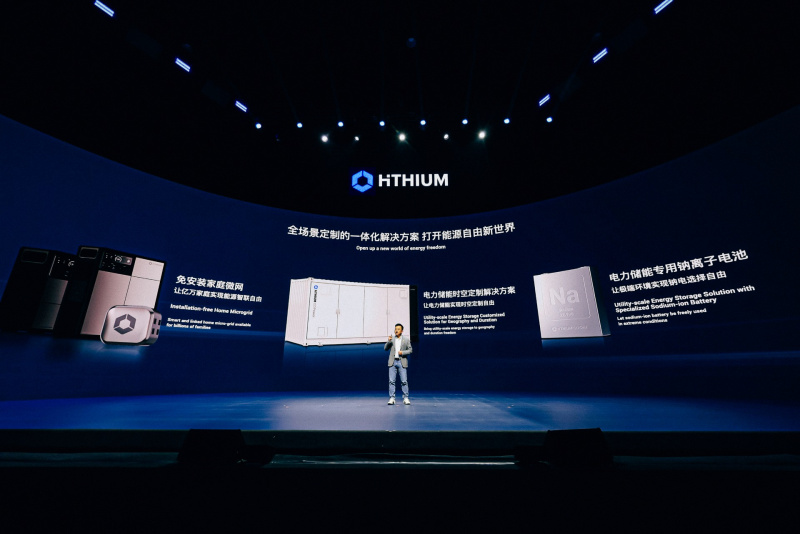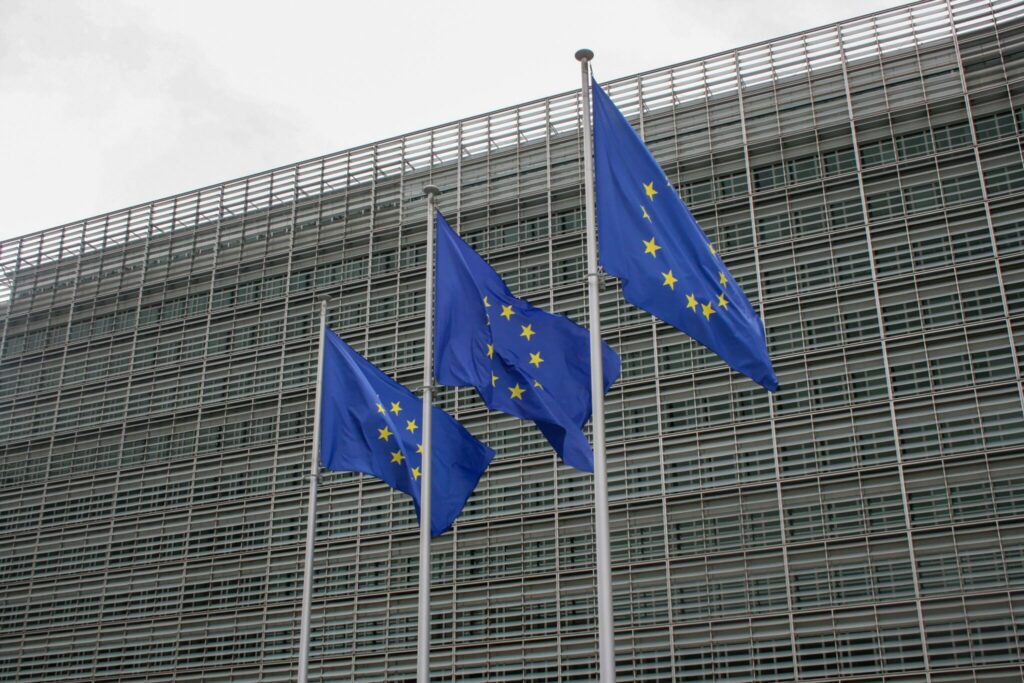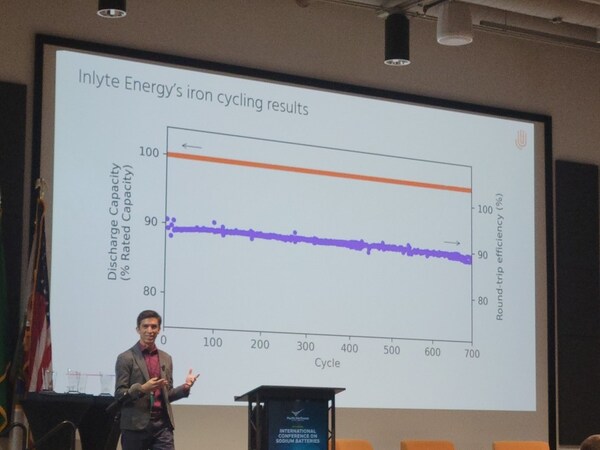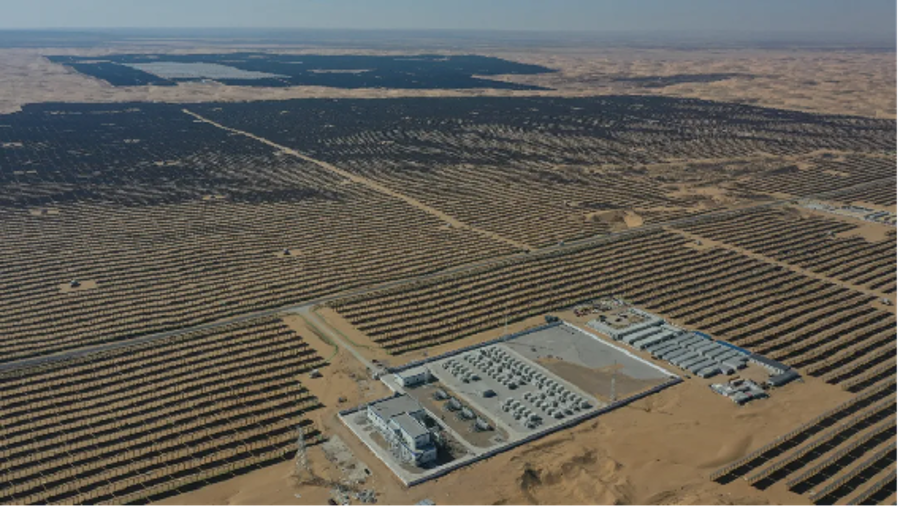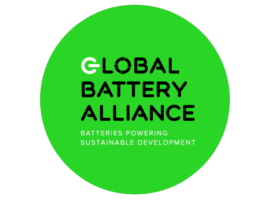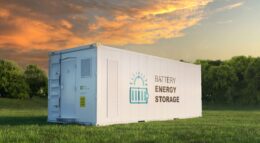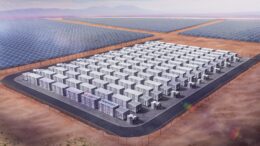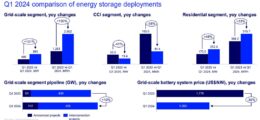US corporates seek to install more than 3 GWh of battery storage
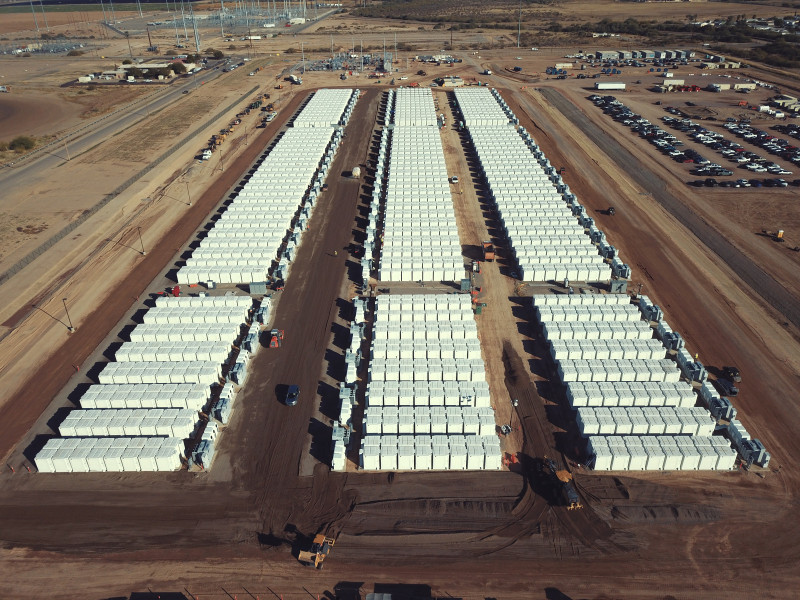
With the rise in electricity demand and decrease in solar prices, US companies are investing in record levels of solar and energy storage to power operations and offset their emissions.
The Solar Energy Industries Association’s (SEIA) ninth annual “Solar Means Business” report, noted that through Q1, 2024, US businesses had reported more than 3 GWh of contracted battery energy storage which is expected to come online through 2029.
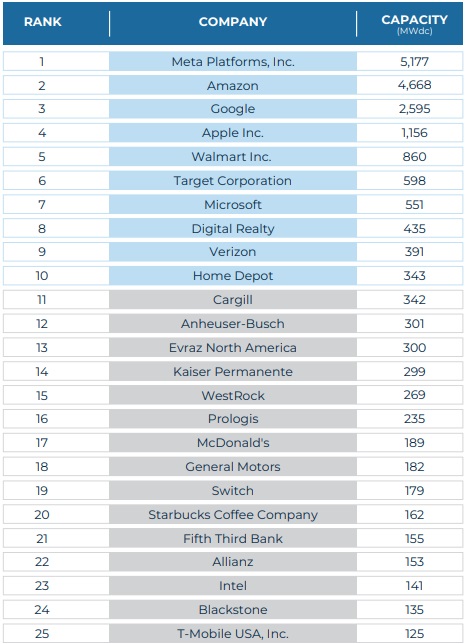
The document also reported corporate energy storage use exceeded 1.8 GWh and businesses had added nearly 40 GW of solar generation capacity.
Google is the leading energy storage user, with 936 MWh of installed battery capacity. The top five companies in terms of solar procurement were Meta, Amazon, Google, Apple, and Walmart. Meta retained its spot as the top corporate solar user, with nearly 5.2 GW of capacity.
Battery energy storage
The “Solar Means Business” report for 2024 tracked the largest corporate users of battery energy storage for the first time. The report found that Google, Apple, and Meta are also among the top 10 companies that are investing in storage. Again, those companies are turning to clean energy to power data centers, and now batteries for added resilience.
“Adding new solar energy to the grid is a critical aspect of our approach to ensuring our data centers are supported by clean and renewable energy,” said Carolyn Campbell, head of clean and renewable energy for the East USA region at Meta. “We’re thrilled to rank number one for corporate solar procurement in SEIA’s report this year and we continue to find ways to grow the grid to benefit everyone and support our goal of matching our global operations with 100% clean and renewable energy.”
Major retailers including Target, Walmart, Home Depot, and Kohl’s have also embraced storage.
“We began our solar program more than 20 years ago,” said Erin Tyler, vice president of property management at Target Corporation. “Target’s long-term investments in clean energy continue to drive value for our guests, communities, and shareholders. Through our commitment to solar, we’re well on our way to achieving our corporate goal of sourcing 100% of electricity from renewable sources by 2030.”
In the medical field, companies such as Kaiser Permanente are using batteries to power microgrids at medical centers, to make them more resilient to power outages. The SEIA report forecast that energy storage will be a dominant trend in corporate renewable energy integration.
Data centers
The top solar and storage investors were also those with data centers, which are driving electricity demand to record highs. Amazon, Meta, and Google continue to add capacity with pipelines that, combined, are more than ten times larger than the next company in the ranking. Amazon alone has 13.6 GW of solar procurement under contract while Meta and Google each have nearly 6 GW under contract.
Amazon announced recently that it had met its goal, set in 2019, of matching all of the electricity consumed in its global operations with 100% renewable energy by 2030. In many cases, Amazon does not have solar onsite but matches its electricity demand by investing in Renewable Energy Credits (RECs), documents that represent financial investment in off-site renewable energy capacity.
Meta is also investing in off-site solar. For example, the company is an investor in the Eleven Mile Solar Center near Phoenix, Arizona. That 300 MW solar farm and 300 MW/12 GWh battery energy storage system (BESS) has the capacity to produce enough energy to power businesses, homes, and Meta’s planned data center in Mesa, Arizona.
“Some of the largest industrial and data operations in the world continue turning to solar and storage as a reliable, low-cost way to power their operations,” said SEIA president and CEO Abigail Ross Hopper. “These industry giants are investing in solar through a diverse range of applications including onsite and off-site installations, on carports, paired with storage, or even as an anchor tenant for a community solar project.”
For a ninth consecutive year, Target retained its position as the nation’s leading onsite corporate solar user. Prologis, Walmart, Amazon, and Blackstone were also among the top five companies for onsite solar installations.
Major manufacturers including General Motors, Toyota, and US Steel were also among the top ten companies for new solar contracts.
Toyota recently signed a virtual power purchase agreement for power from the 815 MW Sequoia Solar project, located about 150 miles west of Dallas, Texas. That project will be one of the largest photovoltaic power facilities in North America.
The long-term incentives in the Inflation Reduction Act have incentivized corporations to expand renewable energy procurement. Companies also said that what would encourage increased clean energy investment would be interconnection reform, new community solar legislation, and simpler tax credit monetization.
From pv magazine USA.




